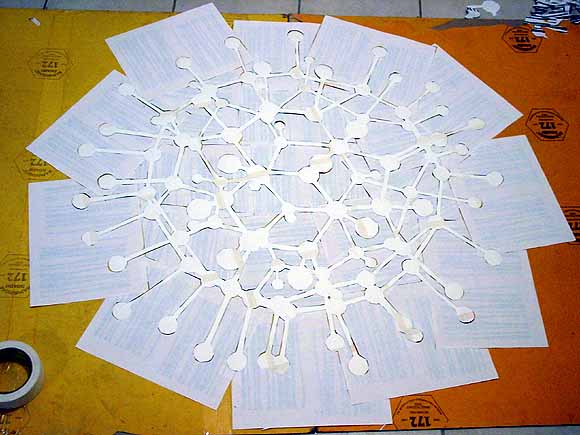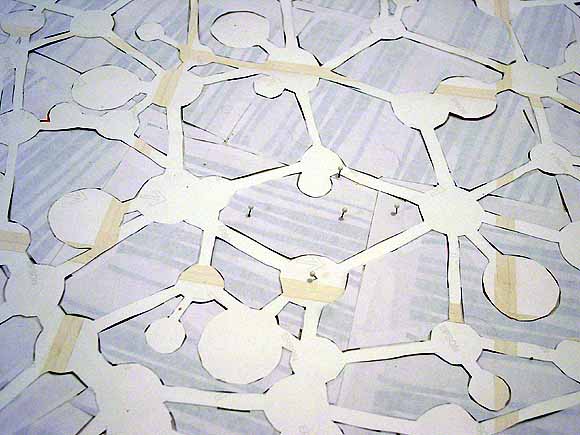View current page
...more recent posts
Bombings in London
My condolences to all impacted by this tragic event. Billmon has some fond things to say about London, but fearing the inevitable making-it-worse by the media, advises his American readers:
The next few days would probably be a good time to stay away from the TV. On top of the televised gore and the stunned faces of the survivors, we'll have to endure the canned Churchillian rhetoric of Messrs. Blair and Bush. Blitzes will be remembered; blood, sweat and tears promised, ultimate victory predicted. The babbling heads of cable news will babble even louder. Conservative con artists will figure the angles and work out the attack lines to use against the liberals -- whatever it takes to drown out the fact that, nearly four years after 9/11, Bin Ladin still lives and Al Qaeda is back in business. Mission unaccomplished.That's a good statement but puts too much emphasis on the al Qaeda threat. (The implacable Islamofascist enemy.) The problem is the cycle of violence we're in because many in the developing world believe we're trying to extract their natural resources by force, stomping all over local traditions to do so. The Iraq war as a response to "terrorism" does nothing to assuage this, especially with the stories about Iraqi oil field maps spread out on the table during Cheney's energy task force meetings. The conversation we should be having is "Are we taking their resources by force and crapping all over their local traditions, so we can lead our wonderful lives?" and if so, "Isn't terrorism in our cities an expected consequence of that?" And if this sounds like America-hating to you, sorry.
Of course, this is all just speculation.
Just found this article by Morgan Reynolds, a Texas A&M professor and economist in the first Bush administration, arguing that the World Trade Center towers collapsed from a controlled demolition (i.e., explosives planted in the building) rather than jet fuel melting the steel beams. This isn't new, but it puts the arguments together nicely.
First, no steel-framed skyscraper, even engulfed in flames hour after hour, had ever collapsed before. Suddenly, three stunning collapses occur within a few city blocks on the same day, two allegedly hit by aircraft, the third not. These extraordinary collapses after short-duration minor fires made it all the more important to preserve the evidence, mostly steel girders, to study what had happened.Reynolds wants to know why the steel was so rapidly shipped to China and melted before engineers had a chance to do "forensics" on it. This January 2002 article from Fire Engineering magazine suggests it was because the Port Authority didn't want lingering evidence of shoddy construction or fireproofing. Another possibility is, maybe the PA just wanted Silverstein, the building's owner, to get some cash.
Reynolds also wonders why all the concrete in the buildings was pulverized into fine dust by the force of the collapse. He says that only happens when explosive charges are used. And he wonders, can jet fuel really melt steel? A German engineer says burning kerosene isn't hot enough. And another issue:
Progressive pancaking [of falling floors] cannot happen at free-fall speed ("g" or 9.8 m/s2). Free-fall would require "pulling" or removing obstacles below before they could impede (slow) the acceleration of falling objects from above. Sequenced explosions, on the other hand, explain why the lower floors did not interfere with the progress of the falling objects above. The pancake theory fails this test.But then, that seems to be contradicted by the next paragraph:
If we put the murder of 2,749 innocent victims momentarily aside, the only unusual technical feature of the collapses of the twin towers was that the explosions began at the top, immediately followed by explosions from below. WTC-7, by contrast, was entirely conventional, imploding from bottom up.Also suspect are Reynolds' apparent assertions that planes did not hit the towers. Were all the videos and eyewitness accounts supposed to be faked? He doesn't say. It is weird that more attention wasn't paid to recovering the plane wreckage. The TWA plane that crashed in '96 was recovered from the ocean floor and reassembled piece by piece in an aircraft hangar; the WTC plane wreckage was apparently just hauled away with the rest of "ground zero" debris (and whose idea was it to call iit "ground zero"--where a nuke hits?)
Reynolds links to many books and web resources on the controlled demolition topic. Obviously 9/11 was a boon to Bush's childish "payback to Saddam" agenda; the case against a government conspiracy mainly comes down to: if they were that smart, why didn't they plant WMDs in Iraq? Why are they bungling Iraq so badly? Because of the quick destruction of so much evidence, conspiracy theory becomes hard to separate from simple facts of engineering. My own minor contribution to the evidence: I've watched two big buildings fall in my life, the Cotton Exchange in Dallas in the early 90s, a controlled demolition, and the North Tower of the WTC, which I saw from a sixth floor apartment window in Jersey. They sure looked the same to me.
Currently up on NY Arts magazine's website is an interview with yours truly titled "Not Just Flying Toasters." I'm told the piece will be running in the September/October print edition, as well. I'm happy with how it came out. Thanks to Aaron Yassin, who did the interview, James Westcott for the excellent editing, and everyone else at the magazine.

rem:x by jimpunk (I added the green)
One of the things the Rovunists do to discredit certain liberals is say "They opposed Afghanistan!"
"Afghanistan was good" is supposed to be the conventional wisdom but not everyone thinks invading that sovereign albeit crappily-run nation and destabilizing it further was any better of a response to 9/11 than "doing" Iraq. When the attacker is a shadowy group as opposed to a nation the only (still) relevant question was whether the severity of 9/11 justified the use of (internationally) extrajudicial means such as commando raids, or whether there were other ways to bag terrorists and pressure countries "harboring" them. Invading meant precisely this: Osama got away, and we now have troops permanently stationed in yet another damn country. Why is this good exactly?
Mine isn't really a "liberal" position, but rather a libertarian or paleoconservative one based on the idea that the US doesn't need military bases all over the world. For the cost of dropping daisy cutters on Afghanistan we could have increased vigilance at home--say, by actually reading airport passenger manifests--and been a lot safer. And perhaps it wasn't such a hot idea to let the incompetents who allowed 9/11 to happen be the ones to "go hunt down the terrorists." Instead of rallying around Bush and comparing him to Prince Hal, the wastrel who became a military leader, as the NY Daily News did, we should have impeached him immediately for 9/11, then thrown out the remaining bums in '04, and let the next administration "go get the terrorists." Again, obviously, law enforcement would have to be extra-vigilant to prevent another domestic attack in the interim, but my sense in '01 was that Osama & Co. had given it their all and nothing else that horrendous was in offing. BushCo hasn't foiled any terrorist plots against the US on the scale of 9/11 because there haven't been any.

I miss the '80s...
"Drum Reverie" [mp3 removed].
My Winamp playlist editor currently has 60 of my own tunes in it, most made in the last six months. There's some duplication, with multiple versions of a few tracks, but still, that's
Update: the amount of music was revised after I downloaded iTunes while updating Quicktime. Unlike Winamp, iTunes tallies the total time of the music in the playlist editor.



